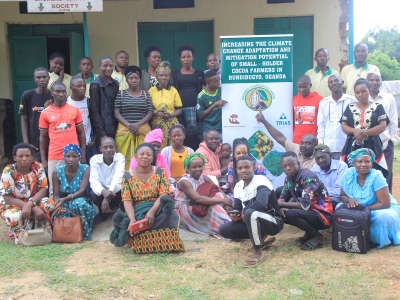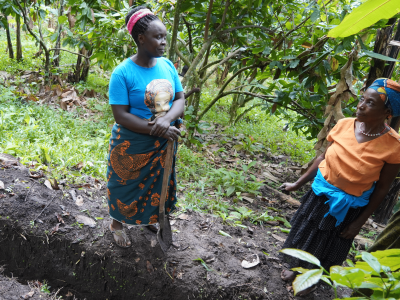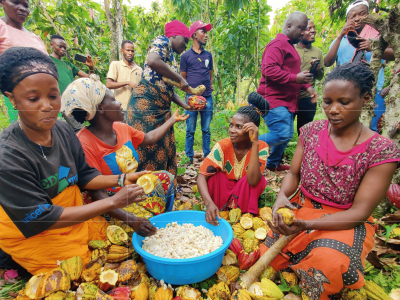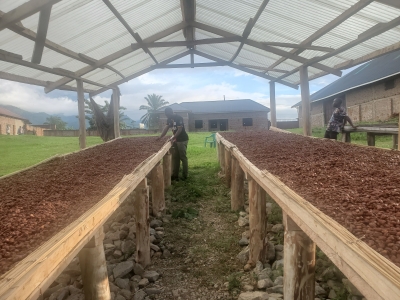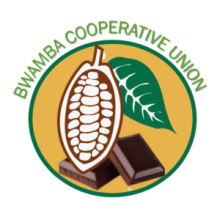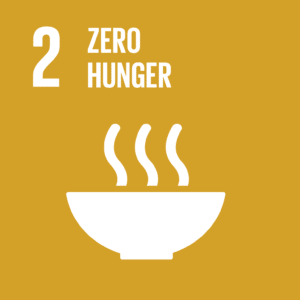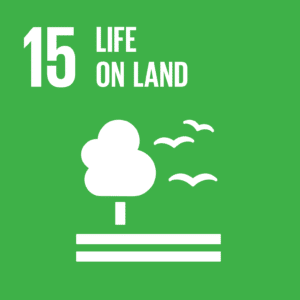Climate-smart agriculture for a carbon neutral cocoa value chain
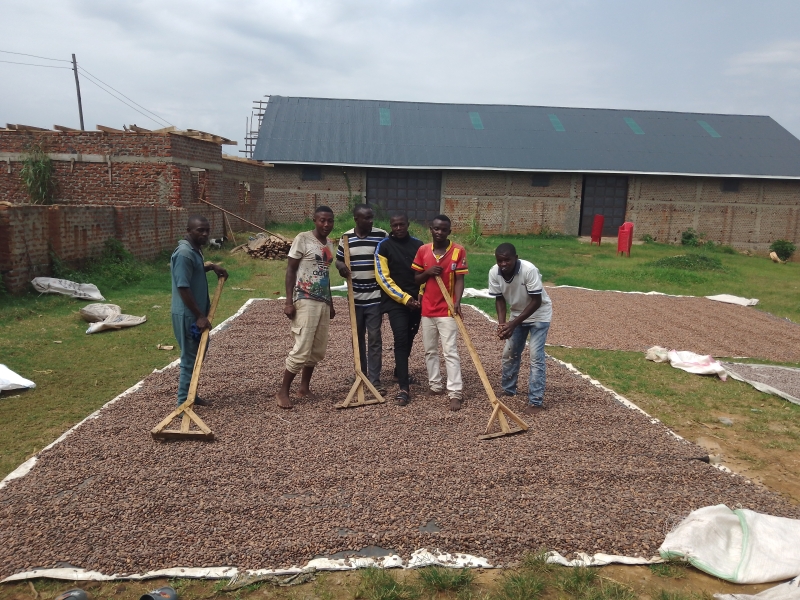
Increasing the adaptation and mitigation potential of cocoa farmers in Bundibugyo, Uganda
Climate change is one of the greatest threats to sustainable development in Uganda and to the fight against poverty. The country is facing increasingly extreme weather patterns that are putting the livelihoods of millions of people under pressure.
One example is the Bundibugyo district in the Rwenzori region of Western Uganda, where cocoa is cultivated. However, the effects of prolonged heavy rainfall, landslides, flooding, and periods of extreme drought pose significant risks to cocoa production. These conditions result in degraded soil quality, reduced vegetation cover, and increased pollution.
Towards climate-friendly and climate-resilient cocoa production
To better equip cocoa farmers against the impacts of climate change, Trias worked on creating a resilient and carbon-neutral cocoa value chain. Using the "Building Resilience Toolbox", developed by the AgriCord Alliance, farmers identified key climate risks and solutions. This included the use of agroforestry techniques to prevent landslides and flooding.
In addition, the consultancy firm Zoto trained cocoa farmers in climate-smart agricultural practices. This contributed to a more sustainable cocoa production system, better adapted to withstand the effects of climate change.
The project profoundly transformed the lives of 450 cocoa farmers and their communities in the sub-counties of Sindila and Ntotoro in the Bundibugyo district. By strengthening the institutional capacities of the Bwamba Cooperative Union (BCU) through the “Building Resilience Toolbox”, local farmers became better equipped to effectively tackle climate-related risks.
Over 5,400 shade trees were planted, and 300 farmers adopted climate-smart agricultural practices such as pruning, trenching, and agroforestry. These efforts led to increased cocoa production and improved quality, enabling farmers to access international specialty markets.
In collaboration with the Bundibugyo district, land was allocated for a proposed cocoa factory, enhancing BCU's visibility and impact. The project not only improved livelihoods and resilience but also positioned BCU as a model for sustainable cocoa farming.
